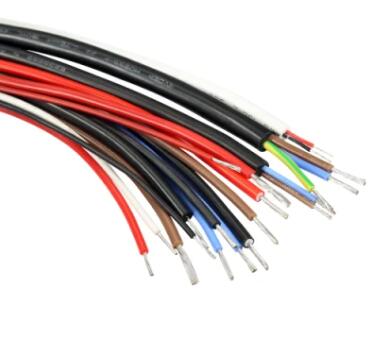Wired for Success: Key Considerations in Selecting Electric Wires for Specific Applications
2023-12-26
Introduction:
Choosing the right electric wire for a specific application is a critical decision that directly impacts the safety, efficiency, and reliability of electrical systems. The vast array of wires available in the market demands a thorough understanding of the application's requirements. In this blog, we'll unravel the key considerations that guide the selection of electric wires, ensuring that each wire is tailor-made for its intended purpose.
1. Electrical Conductivity:
The conductivity of the wire material is a pivotal consideration. Copper is widely acclaimed for its high conductivity, making it the go-to choice for many applications. Aluminum and its alloys are also utilized, balancing conductivity with cost-effectiveness. The specific conductivity requirements of the application will influence the selection of the wire material.
2. Insulation Material:
The insulation surrounding the wire is crucial for preventing electrical leakage and ensuring the safety of the system. Different insulation materials offer varying levels of resistance to heat, moisture, chemicals, and physical damage. PVC, cross-linked polyethylene (XLPE), and thermosetting compounds are among the commonly used insulation materials, each suited for specific environmental conditions.
3. Temperature Rating:
Understanding the operating temperature of the application is essential. Wires come with specific temperature ratings that indicate the maximum temperature they can handle without compromising their integrity. Selecting wires with temperature ratings compatible with the application's environment ensures long-term reliability.
4. Voltage Rating:
The voltage requirements of the electrical system must align with the voltage rating of the chosen wire. Using a wire with an insufficient voltage rating can lead to insulation breakdown and pose serious safety risks. Careful consideration of voltage levels prevents potential hazards and ensures the wire can handle the electrical load.
5. Flexibility and Bend Radius:
The flexibility of the wire is a critical factor, especially in applications where frequent movement or bending is involved. Choosing wires with appropriate flexibility and bend radius prevents damage to the wire and ensures reliable performance in dynamic environments.
6. Environmental Conditions:
Consideration of the environmental conditions where the wire will be installed is imperative. Factors such as exposure to sunlight, moisture, chemicals, and physical abrasion can impact the performance and lifespan of the wire. Selecting wires with suitable environmental ratings ensures they can withstand the specific challenges posed by their installation environment.
7. Mechanical Strength:
In applications where wires are subject to mechanical stress or tension, the mechanical strength of the wire becomes crucial. Wires used in construction, machinery, or other settings with physical demands must be capable of withstanding the applied forces without compromising their structural integrity.
8. Fire Resistance and Flame Retardancy:
In environments where fire safety is a concern, choosing wires with appropriate fire resistance and flame retardancy is paramount. Fire-resistant wires can maintain functionality even in the presence of flames, contributing to the overall safety of the electrical system.
9. Regulatory Compliance:
Adhering to industry standards and regulations is non-negotiable. Different regions and applications may have specific requirements regarding wire types, insulation materials, and safety standards. Ensuring compliance with these regulations is essential for both safety and legal reasons.
10. Cost Considerations:
While safety and performance are top priorities, cost considerations also play a role in the selection process. Balancing the requirements of the application with budget constraints ensures an economical yet effective solution.
Conclusion:
Selecting the right electric wire for a specific application involves a meticulous evaluation of various factors. From the electrical properties of the wire material to considerations of insulation, temperature, and environmental conditions, each aspect plays a crucial role in determining the wire's suitability. A thoughtful and informed selection process not only ensures the efficient operation of electrical systems but also contributes to the overall safety and longevity of the installation. As industries evolve and technologies advance, the art of selecting electric wires for specific applications remains a cornerstone in building reliable and resilient electrical infrastructures.



